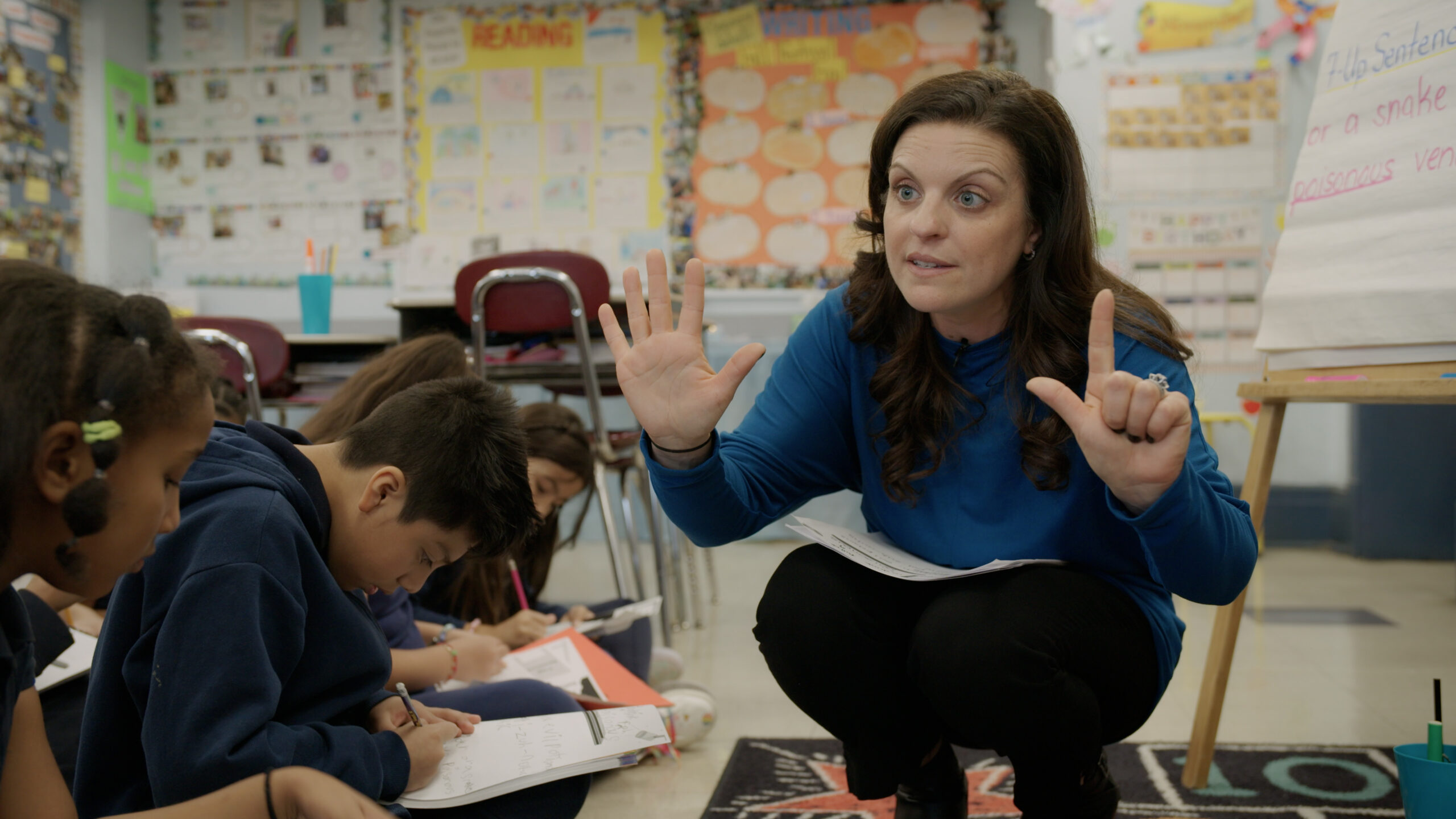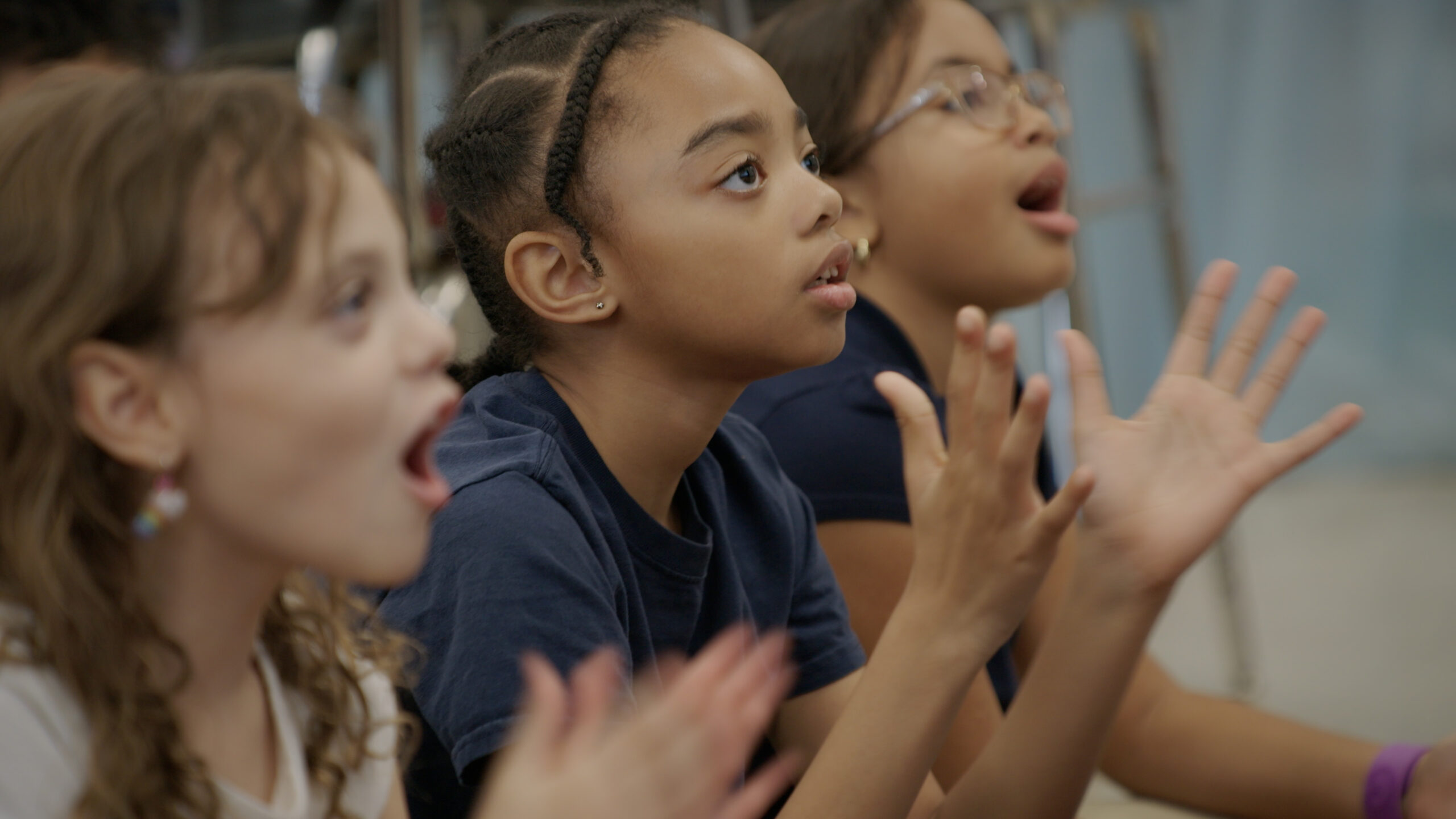Suffix Discovery
Overview
The teacher models Identifying word parts and meanings of a base word and suffix using a vocabulary word from a familiar text. The students discuss words with the same suffix with partners and the group comes together to determine the meaning of each word in student-friendly language.
Key Take-aways
•Develop multisyllabic word routines that teach students the meaning of prefixes and suffixes.
•Text talk routines include a variety of wordplay activities to focus and engage with a word or a small set of predetermined tier 2 vocabulary words after reading a text.
•Infuse decoding practice and identifying base words and affixes with words throughout the instructional day and across subject areas.
Transcript
Dr. Ken Kunz: Suffixes and affixes aid third-grade readers in expanding vocabulary and improving comprehension skills. In this lesson, Mrs. Namati’s third grade students are guided in a mini-lesson to learn about the suffix. Ologist.
Teacher: So our word that we’re studying in our chapter book, Shark Lady is ichthyologist. Can everybody say that?
Student(s): Ichthyologist
Teacher: Can we clap the syllables for that word? Ready?
Student(s): Ich/thy/ol/o/gist
Student(s): Five syllables.
Teacher: Yep. Y’all notice that this word has the ologist suffix. Okay. It means a person who study something. Okay. If you look at the picture, this is a picture of our word. What is this person doing? Scarlet. She’s she’s lucky at the dolphin taking pictures of it. Yeah. She’s studying and looking at the dolphin, taking pictures of it. She is a Do. So right now I want you to turn and talk to a partner, and I want you to think about other words that you’ve heard or that you of that have the ologist. Go ahead. I have some examples. I want you to turn and talk first
Teacher: Okay, come on back to me. Okay. So you just turned and talked to your partners about other words that have the ologist suffix. I’m going to share words that I found and then you are going to tell me if you found other ones. Okay. I found the word zoologist. What do you think a zoologist does? What do you think a zoologist does? Me? Yep.
Student(s): Study animals.
Teacher: A person who studies animals. Very good. What about a biologist? Biologist? What do you think of that one? Biologist. Biologist is a person who studies biology and biology studies all of the plants and the animals. Okay. Have you ever heard this one?
Teacher: Meteorologist?
Student(s): No.
Teacher: What do you think of this one? Can meteorologist, what do you think?
Student(s): I think it’s someone that studies meteors.
Teacher: So a meteorologist is a person who studies the weather. Okay. They let us know what kind of weather is coming. Okay. Now, I know a lot of you were thinking of meteor like from space, but scientists who study that they have to, they really do have to use that to tell us when storms are coming, when it’s going to rain and snow. Okay. So that’s what a meteorologist is. I want us to pay attention to this suffix. Ologist because it means a person who studies something. Okay. Good job.
Dr. Ken Kunz: In Shark Lady, Ichthyologist provides the perfect opportunity for a student-centered lesson on suffixes.


